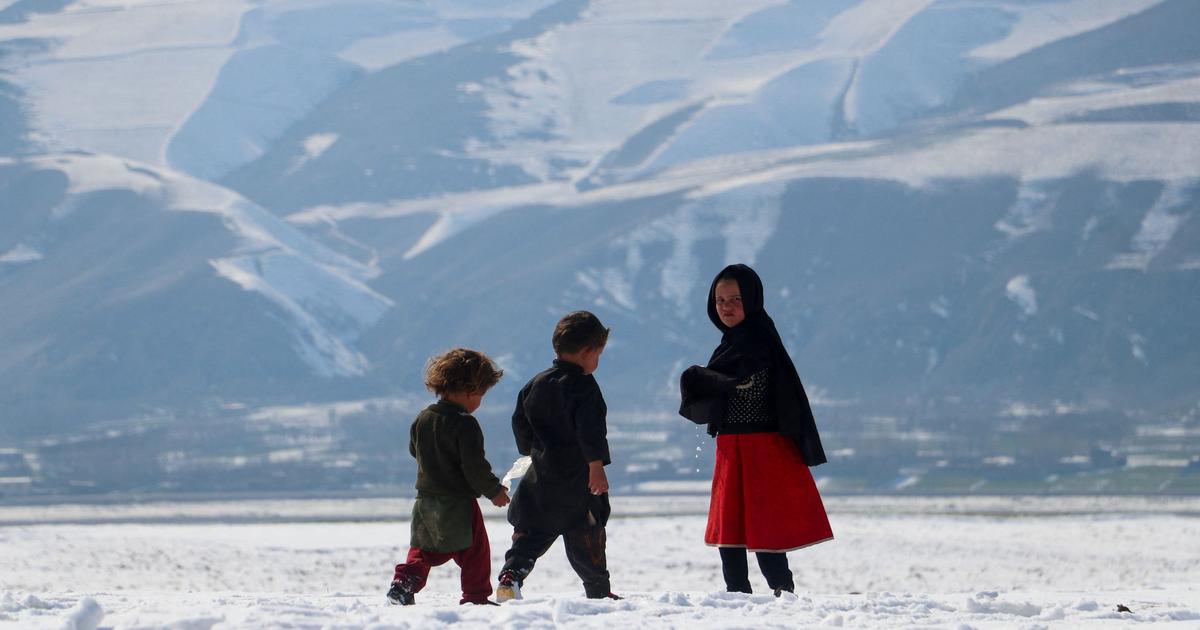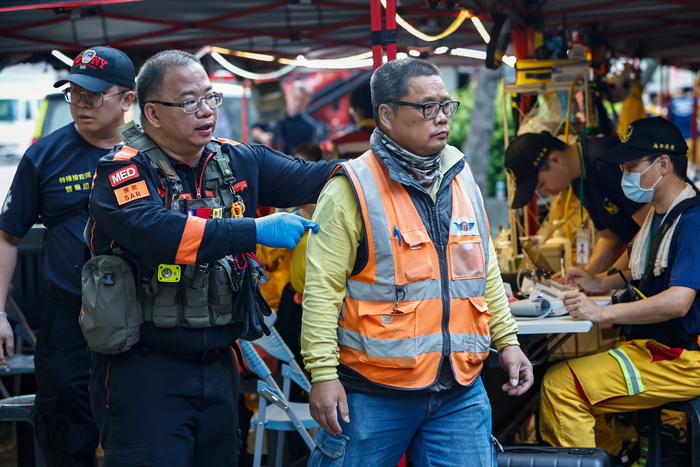Enlarge image
After the devastating earthquake in the Afghan-Pakistani border region: search for survivors in Paktika province
Photo: Ebrahim Noroozi / picture alliance/dpa/AP
A terrible crash, "like thunder, only much louder," that's how it started, farmer Sadeqeen Hamdard recalls: "We were all suddenly awake." Two or three seconds later, there were two powerful bangs from below, " the ceiling, the walls, everything collapsed on us,” the 34-year-old remembers the earthquake on Wednesday night that destroyed his house, the entire village and killed his four-year-old nephew.
The farmers in the village of Asla Shah in the province of Paktika owe it to their poverty that he himself remained almost unharmed and of the nine members of the extended family only his nephew died and his sister-in-law was seriously injured: Hamdard explains that no house in their village has more than one floor, all single-storey huts with a roof made of poplar wood and mud thatch.
Nevertheless, more than 1,000 people died in this worst earthquake in Afghanistan for two decades, and the Taliban administration publishes higher casualty figures every few hours.
When the disaster struck at 1:30 a.m. Wednesday morning, everyone was in their homes, sleeping until the bang woke them up and the debris fell on them.
The US earthquake monitor reported a magnitude of 5.9 for the quake in the Afghan-Pakistani border area and localized the epicenter 50 kilometers southwest of the city of Khost.
A mountainous region, remote even by Afghan standards.
The village of Asla Shah is – or was – just a little south of the epicenter: “No house is left standing,” says the survivor Hamdard, “at least as far as I could see before we left.” That he at least phoned SPIEGEL is because he and some relatives spent most of the day driving from hospital to hospital with his seriously injured sister-in-law.
In the early evening they reached Gardez, the capital of a neighboring province, where at least the cell phone network works.
»Like thunder, only much louder«
The night before, he and one of his brothers were able to free themselves from the rubble of their house, Hamdard says.
He keeps pausing on the phone when he begs a doctor or nurse to tell him how his sister-in-law is doing.
Then, minutes later, an uninjured cousin came running from one of the neighboring houses.
"The three of us then dug all night," after the others, who lay screaming and groaning under chunks of clay and broken wood.
Just like in all the ruins of the village a feverish search was made for survivors.
“It was ghostly, everyone had only flashlights and a few phones for light.
We generate our electricity with solar panels, but that was all broken.
Some held the flashlight in their teeth and dug with their hands.”
In the end they were lucky: his wife and two small daughters survived with shock, scratches and abrasions.
"But next door," he begins before his voice breaks, "the neighbor's daughter was screaming.
We all helped to salvage the rubble there, to get it out.
But then her voice grew quieter.
By the time we reached them, it was too late.
Please don't ask any more questions.' Five of the seven residents of the house next door had died.
At dawn there were only dead bodies left to salvage
When the sun came up, they would have started caring for the dead like Hamdard's four-year-old nephew Hilal.
He receives his final ablution and burial rites on the same day.
Everyone in the village helped the others, Hamdard mentions, as if that were at least a small consolation.
"Even from neighboring villages that were less destroyed, the men came and offered help!"
Helicopters from Kabul landed later in the morning to fly out the most seriously injured, "five times, just for our village."
Then he thought he could take his sister-in-law to Urgun himself, to the nearest hospital in the area.
One of his relatives has a car: »But those in Urgun sent us on to the next town.
They would have hardly any medicines, devices and doctors, all gone.
But even in the next hospital, they shook their heads.
We should continue to Gardez, where there would be an X-ray machine and doctors."
The earthquake hit Afghanistan at a difficult time.
Since the Taliban's victory last August, most of the aid organizations have left with the last foreign troops, and foreign aid is on the back burner, apart from food deliveries.
Hundreds of thousands of men and women have left Afghanistan. The well-educated in particular no longer see a future for themselves, their families, and above all their daughters in the crude Taliban theocracy.
But where should a farmer go who only has his field and a house – at least until the day before yesterday?
Tents and food are needed: and a miracle
Sadeqeen Hamdard and his relatives arrived in Gardez on Wednesday evening.
The sister-in-law is being examined, after all.
One of the walls of the house fell on her, one side was completely paralyzed, "and when she found out about Hilal's death, she seemed like she didn't want to live anymore.
He was her only son.«
What do you need for your village?
'Most urgently tents.
And food.
Our supplies are all buried.« But above all, he adds: »It's a miracle that my sister-in-law survived.«




/cloudfront-eu-central-1.images.arcpublishing.com/prisa/MYJK65WXKZFVFFZQD4CJVYBHA4.jpg)




